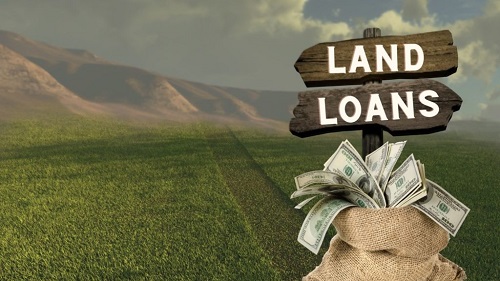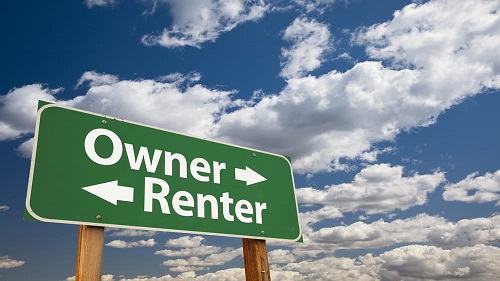
Mortgage Dove
What Is A Land Loan?
Potential home buyers may consider building a house if they want to buy a home. It can be tempting to think it is a great idea, but future homeowners will soon realize how much it would cost to build a house. Although building a house is expensive, there are several ways to make it affordable for first-time homebuyers. They can get land loans to push through with their plans.
Definition of a land loan
A land loan, also known as a lot loan, is used to finance the purchase or development of a piece of land. If you are interested in purchasing land for your home or business, you can apply for a loan. The type of loan you choose will depend on the location you are buying and the intended use of that land.
Sometimes a land loan can be confused with a construction loan . It is another type of loan often used by those looking to build a home. What is the difference? A construction loan is required if you plan to purchase land and begin building immediately. These loans are for potential home builders who need to start their projects instantly and have everything in place.
For future home builders with a plan but not wanting to build or finance a house right away, land or lot loans are better options. A land loan may be a better option if you are facing difficult financial circumstances or are still putting together your home plans.
Different types of land loans
There are three types of land loans: raw land loans, unimproved loans, and improved land loans.
- Raw Land Loan
Raw land is an area that has not been developed without electricity, sewers, or roads. It can be difficult to obtain financing for undeveloped land, so it is important to create a detailed plan detailing how you will develop it. It will demonstrate to lenders that you are committed to the project and won't pose a risk.
Your chances of being approved can be increased if you have good credit and make a substantial down payment (typically 20%-30%). Raw land loans have higher interest rates and require a larger down payment than other land loans.
- Unimproved Land Loan
Although unimproved land can be similar to raw land, it is more developed. Unimproved land can sometimes have some utilities and amenities, but it usually lacks an electric meter, natural gas meter, and a phone box.
Unimproved loans are not as risky as raw land loans, but they can still be difficult to get. Make sure you have a plan, a large down payment (20% or more), and good credit. Unimproved loans are not the riskiest type of loan, so interest rates and down payments won't be too high. However, it's common for them to be more expensive than other forms of loan financing.
- Improved Land Loan
Improved land is more accessible than unimproved or raw land. It has electricity, water, and roads. It is more expensive to buy improved land because it is the most developed. An improved loan will have lower interest rates and lower down payments than a raw or unimproved loan. It is important to have good credit scores and make a substantial down payment.
A lot and a land loan can be obtained the same way as a mortgage loan to buy a house. However, unlike receiving a dollar amount for the property, it is harder to calculate the land's value because there is no collateral.
Lenders are more likely to lend money on land loans than home loans, which results in higher down payments and higher interest rates.
What is the process of obtaining land loans?
A lot and a land loan can be obtained the same way as a mortgage loan to buy a house. However, unlike receiving a dollar amount for the property, it is harder to calculate the land's value because there is no collateral. Land loans deliver more risk for lenders which results in higher down payments and interest rates.
Land Loan Qualifications
Each type of loan has different requirements. There are some guidelines that borrowers should follow when applying for a land loan:
- Provide excellent credit score (720 or more)
- Explain the intended use of the land
- Highlight any property checks that are necessary, such as zoning, restrictions on land use, surveyed boundaries, and access to utilities
These are taken into account by a lender before the rates and obligations for a land loan can be set. Because they are riskier, land loan interest rates tend to be higher than mortgage rates. A borrower may be eligible for lower rates if their credit score is higher and their debt-to-income ratio is better.
Lending Process for Land Loans
After the land loan rates have been determined and the borrower has agreed to terms, the borrower must make a downpayment and repay the loan at the set interest rate. After construction is completed, you have the option to refinance the land loan into a conventional mortgage. Refinancing is a way to secure a lower interest rate and a new principal balance. A Certificate Of Occupancy is also required for this process.
The pros and cons of land loans
You've probably considered applying for a land loan. However, there are benefits and drawbacks.
Pros
A land loan is a great option if you are interested in building a home or a business. You have the chance to build the house of your dreams. It can also be used for commercial purposes by businesses to help them capitalize on new areas. A land loan is a great option for those with vision, creativity, and patience.
Cons
It is important to fully understand the risks and benefits of applying for a land loan. Lenders may be less inclined if there is no collateral. There is also the possibility of a higher down payment and higher interest rates when financing. There are always unexpected complications with a new construction project. For example, the house may not be completed on time. A traditional mortgage might be better for some buyers and offer a more pleasant experience.
How to get a land loan
A community bank or credit union near your land is the best place to apply for a loan. Other loan options may be available depending on the purpose of the land.
Primary Residences
You can apply for a USDA loan if you are planning to build your primary residence in rural areas. USDA loans and USDA Construction loans are available to low- to moderate-income families. These loans have low-interest rates and, depending on the circumstances, may be eligible for loans without any down payment.
Commercial Properties
You can also apply for an SBA 504 loan if you want to use the land loan for commercial purposes. SBA loans are offered by the U.S. Small Business Administration. They are for small business owners who need funds to pay for the purchase of land. SBA loans have terms and interest rates that can vary. However, the repayment period is typically between 10 to 25 years.
Other options for land purchasing
These other options might be better if you aren't ready to take out a land loan.
Home Equity Loan
Home equity loans differ from land loans and may be more appealing to some borrowers. These loans can be used as a "second mortgage" and let you use some of your equity in your home. You don't need to make a down payment, and you can lock in a lower interest rate regardless of how you use the land. The interest you pay isn't tax-deductible as you aren't using the loan to purchase, build, or improve your home which functions as the loan collateral.
The loan repayment term can vary depending upon the lender, but it could be between 5-30 years. You could lose your home if you default in repaying the loan.
Seller Financing
Some borrowers may also consider seller financing. Land contracts are also known as seller-financed land agreements. These agreements are real estate deals where the seller acts directly as a lender and manages the mortgage process instead of a financial institution. The buyer signs a contract instead of applying for traditional mortgages.
Seller financing can be a benefit since they are more flexible than banks, making it easier to get a loan. Although seller financing is an option for land buyers who may not be able to afford large down payments or qualify for a loan, there are also downsides.
It can be difficult to legally own a property that you have purchased from a seller. While you will get an equitable title, the seller retains legal title until you pay it off. It can create problems because your seller might charge higher interest rates, and your contract terms may be unclear.
Conclusion
If you are interested in building a home, you should weigh the pros and cons to determine if a land loan is right for you. Although the idea of building your dream home sounds wonderful, there are many other options. A land loan may be the best option for you if you are looking to build your own design. To get started, you can explore open lots in your local area to find the ideal spot to build.
"Mortgage Dove makes home financing convenient for every American. You can count on us to provide a home buying experience tailored to your personal needs and financial situation. We strive to give you the peace of mind that your home financing goals can be achieved.”

Mortgage®
www.mortgagedove.com



